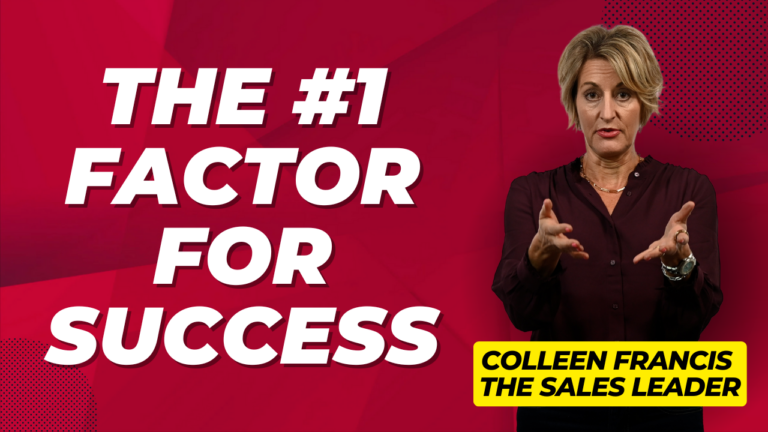For a buyer, the term “sales process” can conjure up some unpleasant feelings. I often get questions from business owners and sales leaders about how their teams can combat that issue and make the sales process enjoyable and memorable from the client’s perspective. Creating a positive experience for your buyer during and after the sales process pays dividends. You’ll cultivate loyalty and make the customer feel as though they had a great need for the product they invested in, and that it solved a problem they truly had. Done right, the buyer might even feel that the sales process was a little bit fun. There are three simple concepts to keep in mind to help guide your sales process and ensure it’s a great experience for your customer.

Tip 1: Talk Less and Listen More
Think of sales as therapy. You’re trying to figure out what the customer’s pain points are and then help them understand how your product can alleviate those pain points. It’s impossible for your team to follow that philosophy if they don’t put listening above talking. Not only will listening allow your reps to make a better pitch, but it will also make the experience a better one for the client; after all, everyone loves to be listened to.
In your trainings, sales meetings and coaching, make sure that the team is talking less, focusing on short questions and paying attention to what their buyers need. Ensure that they’re taking notes, asking add-on or clarifying questions, and expanding upon what the customer has said. The important thing is that they’re listening to the customer and getting a true understanding of their needs.
Tip 2: Practice the Sales Golden Rule – Do What You Said You Were Going to Do, Exactly the Way You Said You’d Do It
Everyone knows that a salesperson who over-promises and under-delivers will endlessly frustrate clients, but there’s a flipside to that concept. Consistently under-promising and over-delivering, though an excellent idea in theory, can erode at your relationship with your clients. Trust is built through consistent relationships over time, and your clients want to know that they can trust you to deliver to their expectations every time.
Train your team to tell your customer what they are planning to do, and then deliver that promise exactly as they said they would. Consistency and reliability are so valuable in today’s sales process that this strategy will build the highest level of trust in your team and assure your customer that your process works.
Tip 3: Worry About the Buyer, Not His Wallet
We’ve all had that nagging gut feeling that something isn’t quite right in a sales process, whether it’s for a large purchase or a small one, and that the person selling to us is just focused on the endgame of making the sale, without worrying about whether that sale is right for us along the way. Make sure that you, your company and your sales team are focused on caring for the buyer first and foremost to avoid this issue. Ultimately, your salespeople need to care first about solving the customer’s problems ad about the challenges the customer is facing. Their first priority should be improving the customer’s situation, not making the sale.
When a sales rep takes on this attitude, it elevates her relationship with the customer and the customer has a memorable, fun experience that she’ll want to repeat.
Find the Sales Process Sweet Spot
For every sales process, there’s a sweet spot when you are identifying a client’s needs, delivering on your promises, and essentially mastering the art of becoming a trusted advisor as well as a sales rep, making for a pleasant sales process and a happy and loyal client.
The diagram below can help you visualize the steps to mastery of the sales process. There are three essential areas you need to work on, but one doesn’t work without the other.
At Intersection #1, you’re listening and delivering, but you haven’t necessarily made the buyer understand that your job is to make his or her life easier, not to sell a product.
At Intersection #2, you’re delivering on your promises and you’ve shown the buyer you care, but you haven’t necessarily taken the time to listen to what the buyer needs. It’s important to ensure that you’re not only delivering as promised, but fulfilling a need for the client.
At Intersection #3, empty promises might be made. You’re listening and you’re caring, but if, in the end, you’re not delivering precisely as you said you would, it’s all for nothing.
Intersection #4 is your sales sweet spot. At that point, you’ve mastered each of these skills and are acting in a way that puts the client first, helps you to completely understand their needs, and delivers the product exactly as you said you would. If you can achieve this, you’ve mastered the art of a memorable sales process.



